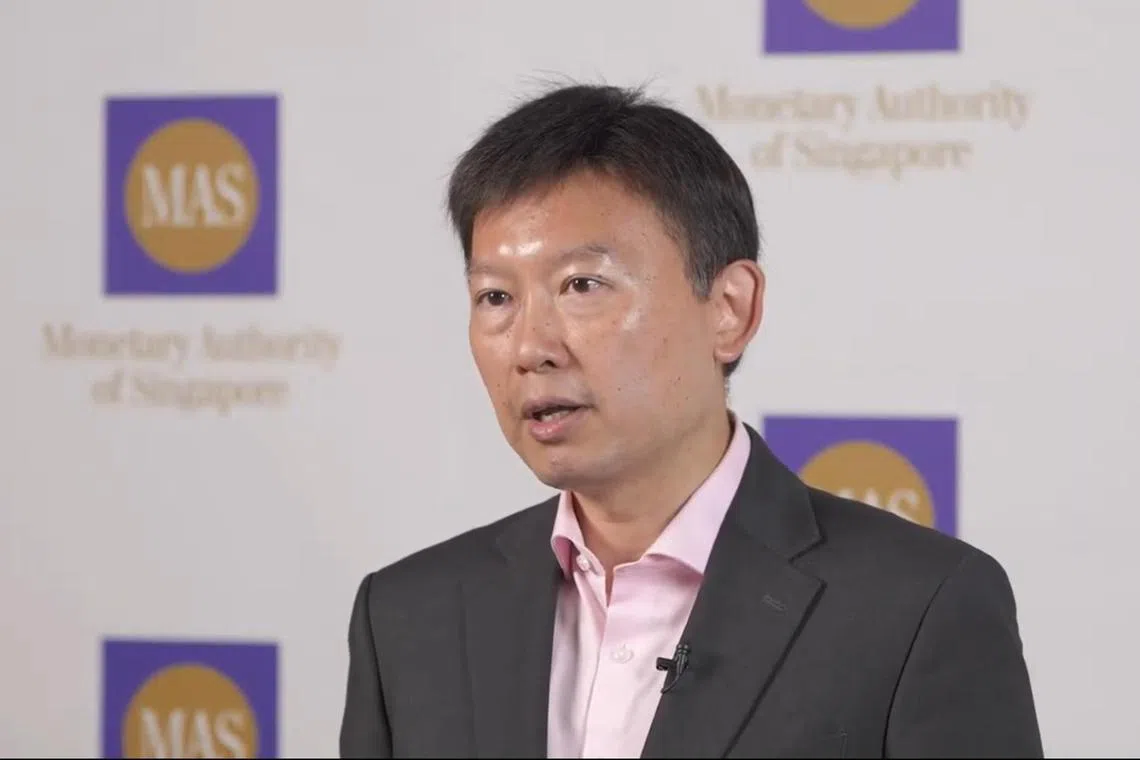Tax incentives to attract firms, fund managers to list in S’pore proposed: MAS
Sign up now: Get ST's newsletters delivered to your inbox

Second Minister for Finance and deputy chairman of the MAS board of directors Chee Hong Tat said strengthening the competitiveness of Singapore’s ecosystem to enable its equities market to grow “is a challenging task with no easy solutions”.
PHOTO: MAS
SINGAPORE - A review group set up by the Monetary Authority of Singapore to boost trading on and draw new listings to the Singapore Exchange has proposed the first set of measures to strengthen the local equities market.
They include tax incentives to attract more enterprises and fund managers to list in Singapore, and incentivise the launch and growth of funds with substantial investments in domestic equities, MAS said in a Feb 13 statement.
Measures aimed at helping local enterprises access growth capital in Singapore have also been developed.
Second Minister for Finance and deputy chairman of the MAS board of directors Chee Hong Tat said the firms include “mid-sized companies that may not have ready access to major capital markets because they are small fish in these larger ponds, but... could use Singapore as a launch pad for their capital raising”.
Measures to encourage companies listed elsewhere to seek a secondary listing here were also included.
The proposals have been submitted to the Prime Minister and Minister for Finance Lawrence Wong. More details will be shared on Feb 21.
Mr Chee, who also chairs the review group, noted that strengthening the competitiveness of Singapore’s ecosystem to enable its equities market to grow “is a challenging task with no easy solutions”. This is because a significant proportion of global capital is now concentrated in a small number of major stock exchanges such as Nasdaq and the New York Stock Exchange, he said.
“So we have been discussing with industry stakeholders, and we have developed a set of measures aimed at helping Singapore enterprises access growth capital and attracting quality enterprises with a regional presence to list in Singapore.”
Explaining why the review group does not recommend requiring organisations like sovereign wealth fund GIC and the Central Provident Fund (CPF) to invest in local stocks, Mr Chee said: “GIC’s mission is to preserve and enhance the international purchasing power of Singapore’s reserves.
“The funds managed by GIC serve a number of key national objectives, including as a rainy day fund in times of crisis like what we saw during Covid-19, contributing to our annual budget via the net investment returns framework and backing the monies in our CPF system.”
He added: “Within its mandate, GIC is able to invest in Singapore companies with a global footprint and can generate good returns.
“So we should let GIC make their investment decisions professionally and commercially, and not require them to have a specific allocation to local equities if such investments result in lower overall returns, as doing so would not be in the best interest of Singapore and Singaporeans.”
He added that he does not believe it is sustainable to use such an approach, reiterating his reply to a similar question in Parliament in July 2024.
“I think it’s more effective for us to look at how we can strengthen the fundamentals of our market ecosystem, which is what the review group has been focusing on,” he said.
MAS added that the review group is working on the next set of measures to foster longer-term development and sustainable growth of Singapore’s equities market.
These measures will be presented in the second half of 2025.
Sue-Ann Tan is a business correspondent at The Straits Times covering capital markets and sustainable finance



